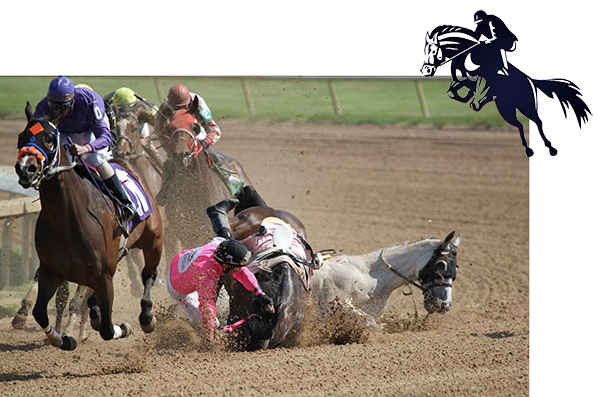5 reasons why horse racing is cruel
5 Compelling Arguments Highlighting the Cruelty of Horse Racing

Exploitation of Young Horses
Horse racing often commences with the training and racing of young horses, some barely two years old, subjecting them to intense physical demands before their bodies are fully matured.
This premature exertion frequently results in long-term physical ailments and, tragically, fatal injuries.
High Risk of Injury and Fatality
The breakneck speeds and fierce competition inherent in horse racing render it perilous for the participating animals. Horses are susceptible to a myriad of injuries, from fractures to tendon damage and even cardiac arrests during races, often culminating in the necessity of euthanasia.
Overreliance on Medication
To maintain horses’ racing capabilities despite injuries and to augment their performance, trainers frequently resort to the excessive use of medications – example: painkillers and anti-inflammatory drugs.
This practice not only conceals injuries but also exposes the horses to severe health hazards.
Inhumane Living Conditions
Many racehorses endure lives of confinement within cramped stalls, devoid of opportunities for social interaction or natural behaviors. Such conditions induce stress, boredom, and mental health issues among the animals, exacerbating their suffering.
Risk of Slaughter
Upon reaching the end of their racing careers or when they are no longer economically viable, racehorses often confront precarious futures. Many find themselves at auctions, where they may be sold for slaughter or exploited in less regulated industries, perpetuating their cycle of exploitation.
What Can Be Done to Address These Issues?

To mitigate the cruelty inherent in horse racing, there is a pressing need to implement stringent regulations. These measures should include imposing age restrictions for racing, curbing the use of medications, and enhancing the living conditions of racehorses.
Additionally, concerted efforts should be made to facilitate the rehoming of retired racehorses. By providing avenues for rehabilitation and adoption into caring environments, these animals can be afforded the opportunity to live out their lives free from exploitation.
Furthermore, promoting alternative forms of entertainment and sports that do not rely on the exploitation of animals is paramount in fostering a more ethical and compassionate society.
Fascinating Insights into American Horse Racing

The Kentucky Derby, an iconic event held annually in Louisville, Kentucky, is renowned as “The Most Exciting Two Minutes in Sports,” capturing the imagination of millions worldwide.
Secretariat, an illustrious American Thoroughbred racehorse, still holds the record for the fastest time in all three Triple Crown races: the Kentucky Derby, Preakness Stakes, and Belmont Stakes.
The Breeders’ Cup World Championships stands as one of the most lucrative events in horse racing, offering substantial prize money across multiple races spanning two days.
Horse racing boasts a storied legacy in the United States, tracing its roots back to colonial times. Since then, it has burgeoned into a multi-billion dollar industry encompassing breeding, training, racing, and wagering, shaping the cultural and economic landscape of the nation.












